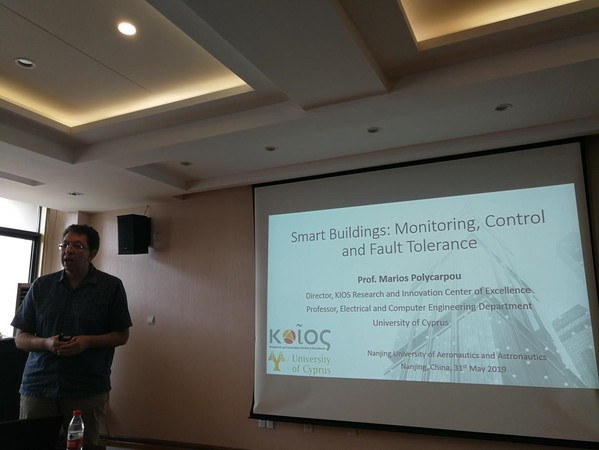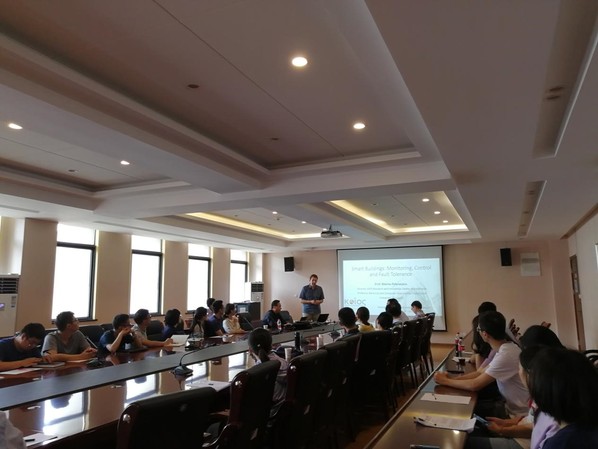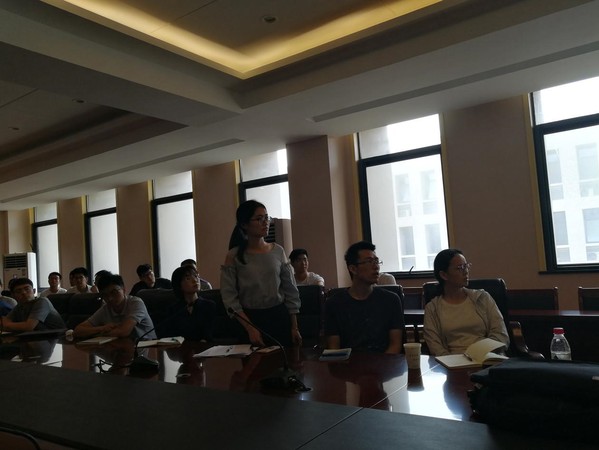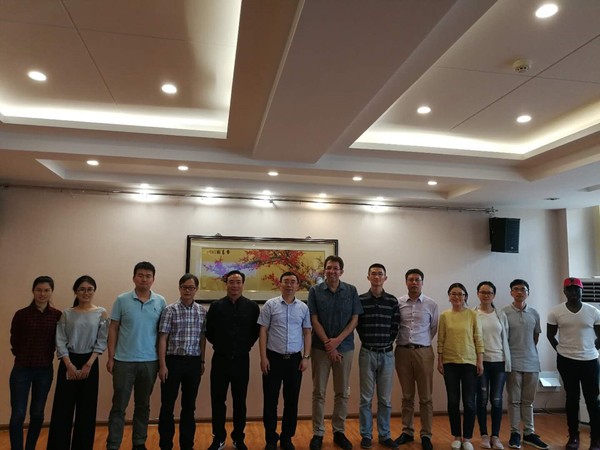2019年05月31日下午,塞浦路斯大学Mrios M. Polycarpou教授应邀在将军路校区bat365正版唯一官网1号楼403会议室做题为“Smart Buildings: Monitoring, Control and Fault Tolerance”的学术报告。报告由bat365正版唯一官网副校长兼bat365正版唯一官网院长姜斌教授主持,bat365正版唯一官网部分师生参加了报告会。

Polycarpou教授此次报告的主要内容包括:智能建筑的主要构架和发展现状,智能建筑的供暖、通风和空调系统的监测、控制和容错,以及几种估计、学习和反馈算法的介绍。

Polycarpou教授指出,智能建筑可以视为一种信息物理系统,可以通过相应的控制以提高能源利用率,增强舒适性、生产力和安全性,提升系统鲁棒性和可靠性。

而后,Polycarpou教授讲解了智能建筑中的容错控制相关问题。在智能建筑系统中,可能发生的故障主要有:空气质量检测系统中的空气质量差、有毒气体泄漏,供暖、通风及空调系统中的执行器和传感器故障,以及供能系统中的执行器和传感器故障。智能建筑系统可以建模为多个非线性子系统相耦合的互联系统,系统中的故障可以通过分布式故障诊断与隔离策略来处理。
最后,Polycarpou教授与到场的师生进行了交流互动,耐心解答了师生们所提出的学术问题并与到会师生代表合影。

附报告人简介:
Marios Polycarpou is a Professor of Electrical and Computer Engineering and the Director of the KIOS Research Center for Intelligent Systems and Networks at the University of Cyprus. He received undergraduate degrees in Computer Science and in Electrical Engineering, both from Rice University, USA in 1987, and the M.S. and Ph.D. degrees in Electrical Engineering from the University of Southern California, in 1989 and 1992 respectively. His teaching and research interests are in intelligent systems and networks, adaptive and cooperative control systems, computational intelligence, fault diagnosis and distributed agents. Dr. Polycarpou has published more than 350 articles in refereed journals, edited books and refereed conference proceedings, and co-authored 7 books. He is also the holder of 6 patents.
Prof. Polycarpou is the recipient of the 2016 IEEE Neural Networks Pioneer Award. He is a Fellow of IEEE and IFAC, and he received with his co-authors the 2014 Best Paper Award for the journal Building and Environment (Elsevier). Prof Polycarpou served as the President of the IEEE Computational Intelligence Society (2012-2013), and as the Editor-in-Chief of the IEEE Transactions on Neural Networks and Learning Systems (2004-2010). He is currently the President of the European Control Association (EUCA). Prof. Polycarpou has participated in more than 60 research projects/grants, funded by several agencies and industry in Europe and the United States, including the prestigious European Research Council (ERC) Advanced Grant and the EU Teaming project.


